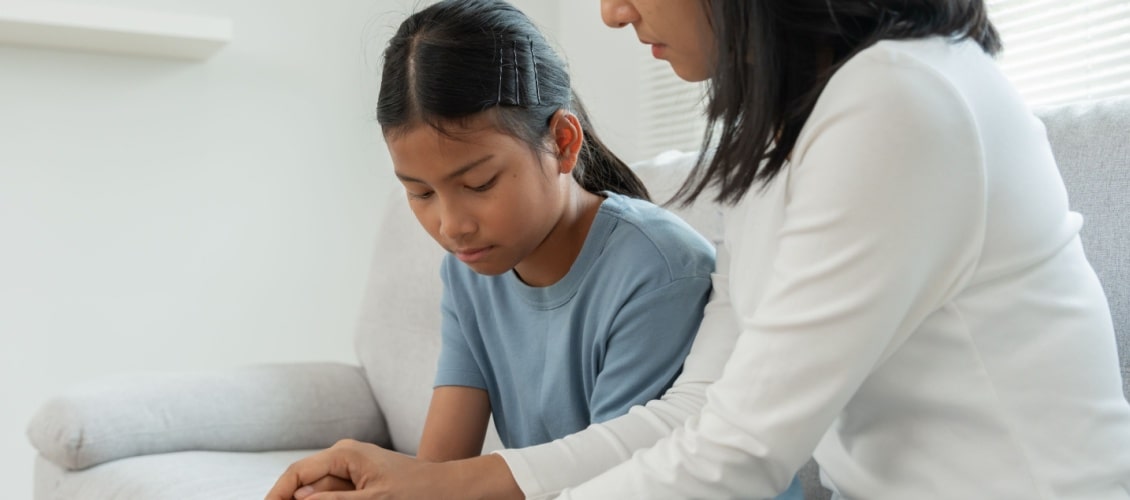Divorce is a life-altering event that can deeply affect a teenager’s emotional and psychological well-being. While it often brings relief from high-conflict home environments, it can also introduce stress, anxiety, and long-term mental health challenges. Adolescence is already a time of significant change, and the added instability of a family breakup can intensify emotional struggles.
Understanding the effects of divorce on teens is crucial for parents, educators, and caregivers to help them navigate this difficult transition. In this blog, we’ll explore how divorce impacts teenagers’ mental health and what can be done to support them.
Emotional Challenges: A Rollercoaster of Feelings
One of the most immediate effects of divorce on children is emotional distress. Teenagers may feel anger, sadness, guilt, or confusion as they struggle to understand why their family structure is changing.
Common Emotional Reactions in Teens:
Anger: They might blame one or both parents for the separation.
Anxiety: Worries about the future, finances, or living arrangements can cause stress.
Guilt: Some teens believe they contributed to their parents’ problems.
Depression: A persistent feeling of sadness or loss is common, especially if they struggle to express their emotions.
These feelings may be temporary, but in some cases, they can lead to long-term emotional issues if left unaddressed.
Tip for Parents: Encourage open communication and reassure your teen that the divorce is not their fault. Seeking therapy or counselling can also help them process their emotions in a healthy way.

Reduced Parental Contact & Its Impact
One of the major effects of divorce on teenage sons and daughters is the potential loss of regular contact with one parent, often the father. This shift can lead to feelings of abandonment and resentment.
Effects of Limited Parental Contact:
Struggles with Identity: Teenagers look to both parents for guidance, and the absence of one can create confusion about self-identity.
Lack of Emotional Support: A weakened bond with one parent can reduce the emotional security teens rely on.
Increased Risk-Taking Behavior: Some teens may act out due to unresolved emotions or in an attempt to gain attention.
Increased Mental Health Challenges
Studies indicate that teens from divorced families are more likely to develop mental health issues such as depression and anxiety. The combination of emotional upheaval, changes in living arrangements, and parental conflict can significantly impact a teen’s psychological well-being.
Signs of Mental Health Struggles in Teens Post-Divorce:
- Withdrawal from social activities
- Changes in sleep patterns
- Decline in academic performance
- Frequent mood swings
- Low self-esteem
Risky Behaviors: A Cry for Help
The emotional turmoil caused by divorce can sometimes lead teens to engage in risky behaviors. Research has shown that adolescents from divorced families are more likely to experiment with drugs, alcohol, and unsafe sexual practices.
Why Divorce Increases Risky Behavior:
- Lack of supervision due to parental adjustments
- Seeking comfort or distraction in harmful activities
- Feelings of rebellion or defiance

Academic Performance: A Mixed Impact
The effects of divorce on teenage daughters and sons can also extend to their academic life. Some teenagers excel as a way to cope, while others struggle due to stress and instability at home.
How Divorce Can Affect School Performance:
- Difficulty concentrating due to emotional distress
- Increased absenteeism
- Lack of motivation or interest in school activities
- Conflict between parents disrupting study routines
Tip for Parents: Keep teachers and school counselors informed about the situation. They can offer extra support and accommodations if needed.
How Parents Can Help Teens Cope
Despite the challenges, parents play a crucial role in helping their teenagers navigate the effects of divorce. Here are some ways to provide support:
1. Encourage Open Communication
Let your teen express their feelings without fear of judgment. Acknowledge their emotions and validate their concerns.
2. Maintain Stability
As much as possible, keep routines and traditions intact to provide a sense of security.
3. Reassure Them
Make sure your teen knows that both parents love them, regardless of the divorce.
4. Seek Professional Help When Needed
Therapists, counselors, or support groups can provide valuable coping strategies for struggling teens.
5. Be Mindful of Conflict
Avoid arguing in front of your teen and minimize exposure to parental disputes.
Helping Teens Thrive After Divorce: Support, Stability, and Strength
While divorce is undeniably challenging, it does not have to define a teen’s future. With the right support, adolescents can adapt, build resilience, and even emerge stronger. The key is to provide reassurance, stability, and open communication throughout the transition.
By understanding the effects of divorce on teens, parents can take proactive steps to help their children cope, heal, and thrive. Every teenager processes divorce differently, so it’s important to be patient and attentive to their needs.
Need Professional Support? We’re Here to Help!
If your teen is struggling with emotional distress, anxiety, or behavioral changes due to divorce, seeking professional guidance can make all the difference. Ottawa Youth Counselling offers expert support to help adolescents navigate family transitions with confidence and emotional well-being.
